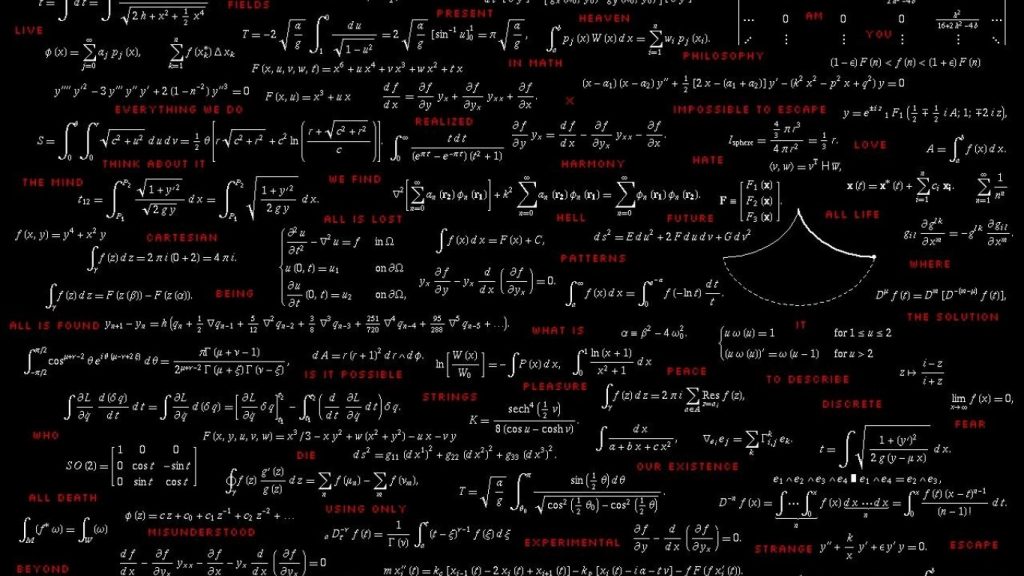Calculus is a subject loved by some and feared by many. But what is Calculus? The simplest definition is: the study of how things change. Calculus can be used to make a model of the velocity at which an object moves, how it accelerates, and even its jerk. Calculus can also be used for optimization, like maximizing the volume of a container or minimizing the cost of production of a product. Calculus can be used to calculate the area of a curve, or to find the volume of solids with atypical cross-sections. Calculus has two main branches that are opposite to each other. Just as addition is to subtraction, Differential Calculus is to Integral Calculus. So how did we ever get this particular domain of human knowledge? Actually, it was the work of two men, working independently on mathematical explanations and independently discovering Calculus. This is their story.

Sir Isaac Newton, born January 4, 1643 in Lincolnshire, England, was a physicist, mathematician, philosopher, and the culminating figure of the scientific revolution of the seventeenth century. He laid the foundations for modern physics in optics, created the three laws of motion that led to the law of universal gravitation, and led the English Royal Society, one of the first scientific communities in Early Modern Europe.1 Gottfried Leibniz, born July 1, 1646 in Leipzig, Germany, was a philosopher, mathematician, and political adviser. He was recognized for his contribution to Metaphysics and Logic.2 What these two men have in common is that they both discovered calculus, even though they never met each other.
During the time of its discovery, Calculus was considered an invention, a completely new branch of mathematics. However, Calculus had been in development throughout the centuries of mathematical evolution. It was just a matter of time until somebody managed to incorporate all the tools and discoveries into a single discipline with a specific notation. Great mathematicians like Archimides, Ptolemy, Diophantus, Fibonacci, Kepler, and Cavalieri make contributions to basic arithmetic, geometry, and trigonometry that were fundamental for later developments and discoveries in higher mathematics. Kepler developed the “Sum of the Radii,” which is a rude kind of integration; and he considered solids to be composed of infinitely small disks put together, which is an idea used on integration. Cavalieri’s Principle greatly contributed to the idea of Integration, as well as Descartes’ and Fermat’s work in Analytic Geometry.3
Ever since the discovery of Calculus, there has been a debate concerning who discovered it first, Newton or Leibniz. Immediately after Leibniz’s publication of Nova Methodus pro Maximis et Minimis in 1684, accusations were made that his work was influenced by earlier works of Newton’s. Newton claimed he had made the same discoveries twenty years earlier but had not yet published them, and Leibniz had copied his (Newton’s) own method, which he called the method of fluxions. In an attempt to settle the dispute, Leibniz appealed the quarrel to the English Royal Society. However, Newton was the president of this society, and appointed a committee formed of his friends to investigate the allegations. The Royal Society subsequently officially accused Leibniz of plagiarism.4 But did Leibniz actually managed to plagiarize Newtons’ work?
Newton discovered Calculus using a geometric approach, when working on his theory of fluxions. This theory consists of the fundamentals of instantaneous change, a basic component of Calculus. He then connected it to the study of infinite series of his predecessor, John Wallis, to create Calculus. But the term Calculus was introduced by Leibniz some years later, when he published his work mentioned above. As opposed to Newton, Leibniz used an analytical approach when discovering Calculus. Therefore it is unreasonable to say that Leibniz plagiarized Newton’s work. Their differences in approach suggests that their discoveries were simultaneous but independent. In addition to his development of Calculus, Leibniz created a mathematical notation to be used in this mathematical field that has become standard for the discipline.5

In sociological theory, simultaneous but independent discoveries or inventions are common. This phenomenon suggests the possibility that society is destined to make certain technological advances and discoveries, and that such innovations become inevitable as related pieces of knowledge accumulate.6 So this situation between Newton and Leibniz might be just another one of these cases, because the development in mathematics in that period of time provided the circumstances for both of these mathematicians to put together this knowledge to discover Calculus. Despite their individual success, Newton and Leibniz recognized the previous developments by many other mathematicians that allowed them to discover Calculus. Newton himself said regarding his own success “If I have seen a little further than others it is because I have stood on the shoulders of giants.”7
The discovery of Calculus was then a feat done by two brilliant mathematicians, independently and by using different approaches. Leibniz did not plagiarize Newton’s work, but supported it unknowingly.
- Encyclopedia Britannica, July 2017, s.v. “Sir Isaac Newton,” by Richard S. Westfall. ↵
- Encyclopedia Britannica, August 2017, s.v. “Gottfried Wilhelm Leibniz,” by Yvon Belaval. ↵
- Susan M. Bautista, Calculus: man’s invention or destined discovery? (San Antonio: St. Mary’s University, 1998), 5-6. ↵
- Susan M. Bautista, Calculus: man’s invention or destined discovery? (San Antonio: St. Mary’s University, 1998), 7-9. ↵
- Susan M. Bautista, Calculus: man’s invention or destined discovery? (San Antonio: St. Mary’s University, 1998), 11-12. ↵
- Susan M. Bautista, Calculus: man’s invention or destined discovery? (San Antonio: St. Mary’s University, 1998), 13. ↵
- Rouse Ball, A Short Account of the History of Mathematics (New York: Dover Publications, 2012), 93. ↵



40 comments
Jocelyn Moreno
This article was very informative! I believed this article wasn’t going to be very interesting but in fact, it was. I’ve always known that calculus wasn’t created by one man but multiple, it’s nice to know the actual background of Calculus creation.
Alexandra Rodriguez
I have never been a fan of math or physics at all, however the history behind them is so intriguing. The conflict between two highly intelligent people is always so interesting. While they used two different approached and ultimately verified each other’s work, they also argued over who was going to take the credit. They both deserve the credit, and the only reason Newton was able to say Leibniz plagiarized was because he had connections with the people making the judgment, which is never a battle won fairly.
Alexander Manibusan
From what I’ve read a long time ago, Archimedes did, in fact, made the building blocks for calculus but he also could have maybe done the first steps of it. Much like the zero, many people came up with it independently- some established it earlier than others. Therefore I don’t really see why it is important to know “who invented calculus first”. Although I, too, would be furious if someone copied my work and claimed they invented something new.
Johnanthony Hernandez
Great article and very informative, I had been taught that Newton had created calculus. But until reading your article, I didn’t know about Leibniz or that he had been working on the same concept of mathematics as Newton at the same time without the other knowing was working on it as well. As well as how they accused each other of plagiarize when it was nothing more than a coincidence.
Anais Del Rio
I did not expect to read that Newton helped to develop calculus that we use today, I only knew that he had helped with the development of physics. It was interesting to read that Newton and Leibniz had worked on the same concept at the same time without even knowing (until later). It reminds me of the modern world where it seems like people plagiarize but sometimes it really was a coincidence.
Yahaira Martinez
I have always loved math and Calculus was no exception. The debate described in this article had been mentioned to me prior but i had never paid much attention to it. I always knew that Sir isaac Newton was given the credit for inventing calculus but i didn’t know that he had knowledge of Leibniz and actually accused him of plagiarism. This article was very interesting and full of facts that i had never heard before.
Saira Castellanos
I saw the title of the article and I thought it was going to be an immediate snooze fest, but it wasnt. This article was actually pretty informative. I thought Newton was just a science kind of guy, but I guess not. I didnt know who Leibniz was and it is kind of sad that no one knows who he is, and that even children at the age of 6 or 7 are being taught about Newton. I guess only people who love calculus are the only ones who learn about Leibniz and his major contribution.
Evian-loren Salgado
Though I am not a fan of Calculus this was still a very interesting and informative article. It was nice to learn some of the history of calculus and how both Newton and Leibniz contributions shaped the calculus we know of today. The author wrote a very good and informative article. I honestly enjoyed reading about calculus and the history behind it.
Tyler Thompson
This was a very interesting article, before reading this, I did not even know who Leibniz was. The article was very well written, and he pointed out clear facts that shows who won the argument between the two mathematicians. These two men were able to take different approaches to recognize this branch of math.
Carlos Vazquez
Calculus is only known by less than 1% of the entire world population and although I can’t say I belong to that one percent, this article was very informative. Given the importance of calculus, it can easily be seen why the argument over who created it is important. Although Newton was a world renown mathematician and could have easily taken all the credit, it is undeniable that the contributions of Leibniz were just as important.